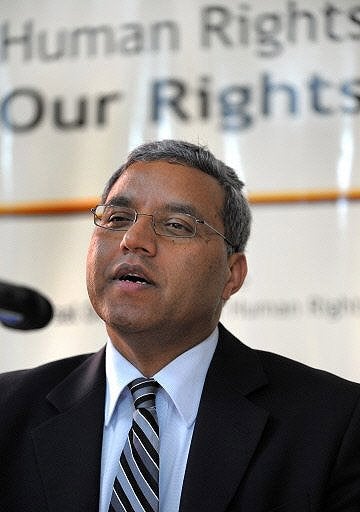On March 22, the Human Rights Program and International Legal Studies at Harvard Law School sponsored “Protecting Human Rights Through the Mechanism of UN Special Rapporteurs,” a talk by Surya Subedi. Subedi, United Nations Special Rapporteur on Human Rights in Cambodia and Professor of International Law at the University of Leeds, discussed the role of the Special Rapporteurs in combating human rights abuses and he shared anecdotes about his work in Cambodia.
The Special Rapporteurs, he explained, have been called the crown jewel of the UN human rights mechanism, as they carry out some of its most difficult duties. They visit countries where human rights abuses are suspected, traveling through both cities and remote areas, to speak with people who have suffered. Protected by diplomatic immunity, they often speak on behalf of citizens who fear persecution. They provide early warning about potential human rights abuses and they recommend preventive measures. And they activate and mobilize national and international communities to encourage cooperation between governments and societies.
In short, he said, Special Rapporteurs are expected to be human rights activists, international diplomats, academics, and government advisors. In Cambodia, Subedi’s job is to ensure that human rights treaties ratified by that country are implemented. Where there are shortcomings, he investigates and makes recommendations to the government. Subedi said that his activities within a country are governed by three ideas – independence, objectivity and impassivity.
“So long as we remain in these parameters, we can do whatever we’d like,” he said. “Although we’re appointed by the UN, we’re not employed by it. We’re not loyal to it. I’m a lawyer, and my loyalty is to the rule of law and to the international human rights treaties ratified by Cambodia. That’s it.”
Subedi also discussed international law and national sovereignty more generally. Acting on behalf of the international community, Special Rapporteurs enter countries and essentially pierce the veil of national sovereignty.
“No country can seal itself. National sovereignty is actually a limited sovereignty,” he said. “In no other area of international law can international actors pierce the veil of national sovereignty to the degree that they can under human rights law.”
